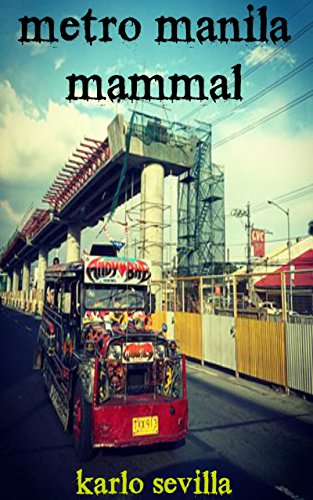Wombwell Rainbow Interviews
I am honoured and privileged that the following writers local, national and international have agreed to be interviewed by me. I gave the writers two options: an emailed list of questions or a more fluid interview via messenger.
The usual ground is covered about motivation, daily routines and work ethic, but some surprises too. Some of these poets you may know, others may be new to you. I hope you enjoy the experience as much as I do.

Karlo Sevilla
writes from Quezon City, Philippines and is the author of two poetry collections: “Metro Manila Mammal” (Soma Publishing, 2018) and “You” (Origami Poems Project, 2017). He has more than a hundred poems published in various literary magazines and platforms worldwide, including Philippines Graphic, Eclectica, Radius, The Ramingo’s Porch, The Broken Cassette, Poets Reading the News, Rue Scribe, and elsewhere. His literary work has earned accolades among publications and award-giving bodies in his home country and abroad. He currently studies for the Sertipika sa Panitikan at Malikhaing Pagsulat sa Filipino (Certificate in Literature and Creative Writing in Filipino) program of the Center for Creative Writing of the Polytechnic University of the Philippines, and is a member of Rat’s Ass Review’s online poetry workshop.
Book: https://www.amazon.com/Metro-Manila-Mammal-Karlo-Sevilla-ebook/dp/B07CRN1FTK
Twitter: https://twitter.com/KarloSevilla
Blog: http://karlosevillaofquezoncity.blogspot.com/2016/10/s-list-of-published-poems-all-with-links.html
Facebook: https://www.facebook.com/karlo.sevilla
The Interview
1. What inspired you to write poetry?
Three of my English teachers throughout high school, who each expressed appreciation for some of my poems. And poetry books, particularly Joe Pintauro’s “Kites at Empty Airports,“ which copy I bought one grey and lonely afternoon in the late 80s or early 90s, also way back in high school.
2. Who introduced you to poetry?
I am certain my mother’s lullabies and my first nursery books introduced me to poetry – the end-rhyme kind.
3. How aware were you of the dominating presence of older poets?
They’re always in my conscious and subconscious state of mind when I write, and their lives and words always inform, inspire and challenge.
4. What is your daily writing routine?
I have ADHD, which may be the reason that I don’t exactly have a daily writing routine. Let’s just say that most days of the week, I either complete writing a poem or come up with lines in my head that I eventually write down to use in one.
5. What motivates you to write?
Among other motivations and reasons, it’s the poetry community, as I constantly yearn to prove that I rightfully belong here. That I work on an art form and share the fruits of my labour with a worldwide community which members do the same. And in solidarity, I should be a proud and responsible member of this community.
6. What is your work ethic?
Read and write passionately as often as possible. And I really try to do these on a daily basis – with varying degrees of success.
7. How do the writers you read when you were young influence you today?
I’m not inclined to pinpoint what aspects of my poetry are influenced by the writers I read in my younger years. Perhaps if I study more on literary theory I can be more confident and articulate, and put an “academic” label on any influence on my poems, or their parts, by any particular poet. Suffice to say that I’m certain the following poets whose works I’ve read and admired in my late teens to early 20s continue to influence my writing style: Joe Pintauro, Dylan Thomas and Pablo Neruda (among others).
8. Who of today’s writers do you admire the most and why?
For now, let me mention three young Filipino poets: Kristine Ong Muslim of the enchantingly disturbing prose-like poetry, Anne Carly Abad whose poems I find bittersweet and accessible, and Henrie Diosa Jimenez who makes a personal playground of words and is an utter delight to read.
9. Why do you write?
Mortality: I think I have some beautiful things to share via the written word and I’m compelled to write as much as I can until death or incapacitating disability – whichever comes first – “kindly stops for me.”
10. What would you say to someone who asked you “How do you become a writer?”
My parents and teachers instilled in me the love of reading, then the latter encouraged me to write, and I took it from there. (For those who claim that they were never encouraged to read but want to write, then let me help with this old advice: read and write.)
11. Tell me about the writing projects you have on at the moment.
I plan to finish the longest poem I’ve ever written before this year ends. And, I’m trying to get a short collection published via any reputable poetry chapbook contest. If it doesn’t win any, then I’ll go the traditional route of approaching a prospective publisher.
Thank you very much, Paul, for this wonderful interview! I look forward to your future interviews with other Filipino poets who write “from” English. 😊
You’re more than welcome, Karlo.
You’re more than welcome, Karlo.